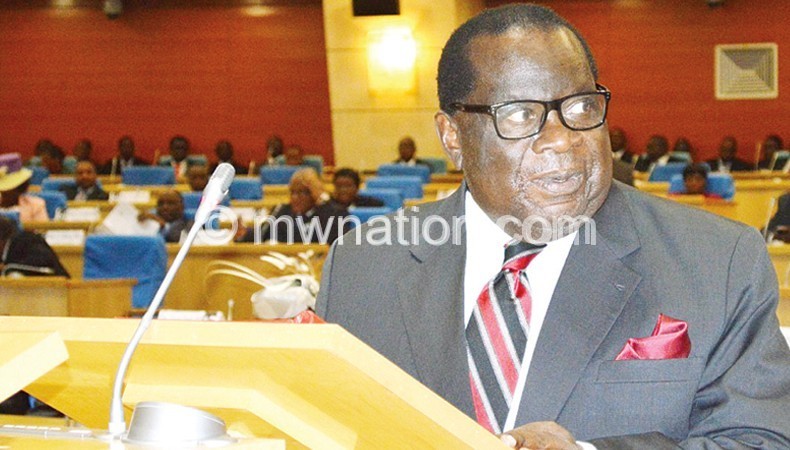Cashgate a result of unethical leadership
CDH Asset Investment general manager Daniel Dunga says Cashgate—the financial scandal involving looting, theft and corruption at Capital Hill, the seat of Malawi Government—could not have happened if leaders were ethical.
British forensic auditors Baker Tilly this year reported that K13 billion was stolen by public and private sector operatives in an organised fashion now dubbed Cashgate, a scandal that has resulted in donors withholding their budgetary aid.

The withholding of budgetary support, which usually accounts for 40 percent of donors’ support, has dire consequences as it means that government will this fiscal year grapple with a huge deficit—excess expenditure over revenue.
This year’s fiscal plan is reeling from a K107 billion deficit, of which K15 billion will be sourced domestically, most likely through Treasury Bills (T-bills) while the remainder will come from foreign sources, according to Minister of Finance, Economic Planning and Development Goodall Gondwe.
Dunga, in his presentation titled ‘Ethical leadership: Walking the talk’ at the recent Institute of Chartered Accountants in Malawi (Icam) conference, noted that the money stolen through Cashgate could have gone a long way inthe socio-economic development of the country.
He said people meet “serious ethical challenges everyday,” defining ethics as doing the greatest good for the greatest number, implying that those who were involved in Cashgate did something that benefited themselves or a few people.
“We don’t have to do much to change this country, we just need ethical people,” said Dunga, a beneficiary of this year’s Mandela Washington Fellowship, the flagship programme of President Barack Obama’s Young African Leaders Initiative (Yali).
He said there is feeling that if one is asking people to live ethically, it is like living against nature.
“We don’t usually conceptualise how much it [K13 billion] is. It is a lot of money.”
Dunga said the money which was siphoned through Cashgate could have gone a long way in solving some of the problems the country is facing.
“That is not small change…it is a lot of money that could have gone a long way in building schools and buying medicine in hospitals,” he said, in a presentation which was described as inspiring by a number of Icam delegates.
Diverting from Cashgate to talk about this year’s K742.8 billion budget, Dunga said the resources could be enough if only the implementers of the financial plan are ethical.
“All we need to do is managing the few resources that we have,” he said, urging accountants to be ethical because they are gatekeepers as they keep the money.
“If one tambala goes out of the system, the accountant should know. Knowledge is responsibility [and] if you know, blow the whistle. Absence of proof is not proof of absence.”
He urged accountants to deliver on their responsibility and take care of the money because it is their primary responsibility.
Cashgate came to light when an accounts assistant in the Ministry of Climate Change and Environment, Victor Sithole, was allegedly found with huge amounts of money which was not in line with his monthly income.
The scandal was later compounded by the shooting of the former budget director in the Ministry of Finance Paul Mphwiyo on the night of September 13 2013. A few days later, a number of civil servants were found with stashes of cash hidden in their car boots without proper documentation on how they got the money.





